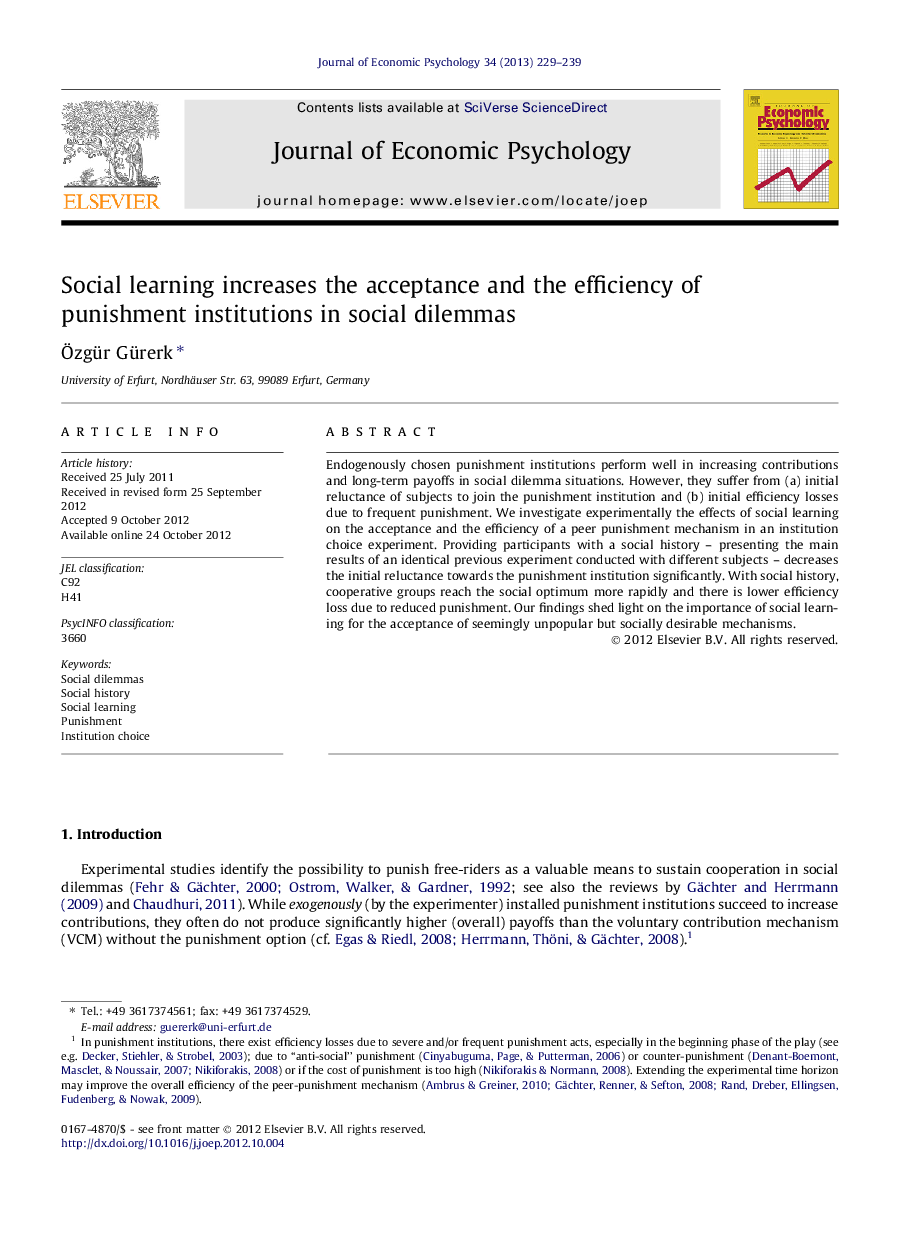| Article ID | Journal | Published Year | Pages | File Type |
|---|---|---|---|---|
| 885081 | Journal of Economic Psychology | 2013 | 11 Pages |
Endogenously chosen punishment institutions perform well in increasing contributions and long-term payoffs in social dilemma situations. However, they suffer from (a) initial reluctance of subjects to join the punishment institution and (b) initial efficiency losses due to frequent punishment. We investigate experimentally the effects of social learning on the acceptance and the efficiency of a peer punishment mechanism in an institution choice experiment. Providing participants with a social history – presenting the main results of an identical previous experiment conducted with different subjects – decreases the initial reluctance towards the punishment institution significantly. With social history, cooperative groups reach the social optimum more rapidly and there is lower efficiency loss due to reduced punishment. Our findings shed light on the importance of social learning for the acceptance of seemingly unpopular but socially desirable mechanisms.
► We investigate the effects of social learning in a endogenous punishment institution. ► We provide participants with a social history about an identical previous experiment. ► Social history increases the acceptance of the punishment institution significantly. ► With social history, cooperative groups reach the social optimum more rapidly. ► There is lower efficiency loss due to reduced punishment.
